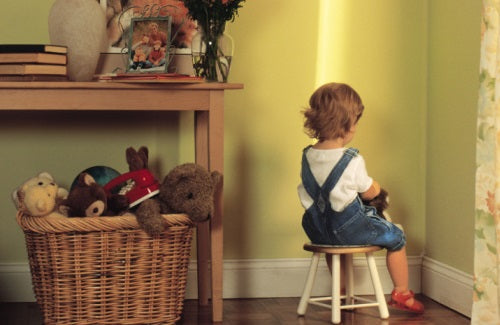Today’s parents believe that for any behavior problem, there is a right method or technique that will solve it. Indeed, it’s important that you select your approach to a behavior problem strategically, with an eye to your child’s age, the severity and duration of the problem, and so on.
But the essence of effective discipline for children is not a collection of right methods but rather a right point of view.
Without the right point of view, no method will work for long. With the right point of view, just about any strategically chosen method will work and keep right on working.
What I have to tell you is not anything new. In essence, I’m going to describe the point of view that was held by most parents—the overwhelming number, in fact—prior to the psychological-parenting revolution that swept America in the 1960s and early 1970s. Your great-grandmother, maybe even your grandmother, knew this stuff. They knew it intuitively because they were in touch with common sense.
Since the 1960s, a big wet blanket of psychobabble has smothered parenting common sense in America. My aim is to help you do away with the big wet blanket so your common sense can breathe again.
The 7 Fundamentals of Effective Discipline for Children
1. Alpha Speech
The fewer words a parent uses when giving instructions or conveying expectations, the more likely it is that the child will obey.
One does not accomplish the successful discipline of a child by manipulating consequences. Nonetheless, it is important that parents do all they can to help children learn that in the real world misbehavior results in negative outcomes.
2. Nipping it in the Bud
Don’t sweat it; get it!
In most cases, misbehavior should be nipped in the bud. Be consistently intolerant of misbehavior, but don’t get all bent out of shape over it. Be calmly purposeful in your intolerance. Let your children know, right off the bat, that you will accept nothing less than proper behavior at all times in all circumstances.
3. The Agony and the Godfather Principles
Parents should not agonize over anything a child does or fails to do if the child is perfectly capable of agonizing over it himself.
The Agony Principle embodies the fact that children have to learn some lessons the hard way. Because their consciences are not fully developed, children do not naturally feel bad about bad things they do. They need outside agents, therefore, to make them feel bad. That’s where adults—parents and teachers—come in. To activate the agony Principle, you simply make the misbehaving, irresponsible child an offer he can’t refuse.
4. The Referee’s Rule
When a child misbehaves, parents should not threaten, warn, give second chances, or make deals. They should simply and dispassionately call the “foul” and assess the penalty (in accordance with the agony and Godfather Principles).
Up until now, you probably thought that the disciplinary chaos in your household was being caused by your kids. I hope you now realize that you’re causing the chaos, not them. Only when you arrive at that understanding can you correct the problem, whatever it is.
5. The Penicillin Principle
Don’t confuse symptom relief with cure. If you abandon a successful discipline treatment at the point of symptom relief, the possibility of relapse is greatly increased. and a relapse is always more difficult to treat than the original condition.
When parents tell me that a particular discipline strategy worked for several weeks and then stopped working, I immediately suspect that the truth is as follows: “We worked at the strategy for several weeks and then, thinking we’d solved the problem, we stopped working at it.” In other words, they confused symptom relief with cure.
6. Bite Off Only What You Can Chew
Take a deep breath, relax, and instead of trying to take ten steps (the ten behavior problems identified) in one reckless bound, take those ten steps one step at a time.
Generally speaking, the more intense your child’s behavior problems, the more frustrated you are; and a frustrated parent is likely to try to bite off much, much more than he can possibly chew, thus dooming any discipline plan to failure before it even starts. Start with the behavior issue that you feel will be easiest to fix and work from there, tackling a new misbehavior after the previous one has been cured.
7. The Jeremiah Principle
Proper discipline does not guarantee proper behavior.
Proper discipline may cause a child to make better decisions. On the other hand, proper discipline of the sort described in this book may make a child that much more determined to get his own way. The frustrating thing is that it’s impossible to determine, in advance, which child is going to react in which way. One thing is certain: if God’s discipline has been rejected by His children, then your discipline may be rejected by your children as well.
* * *
In essence, it all comes down to parents learning how to talk so children will pay attention and do what they are expected to do. This is what parenting is all about: providing leadership to children so that they become the best people they are capable of becoming. It starts with the L-words: love and leadership, and it culminates with your children leaving home and showing you what a good job you did.
Your Turn
What discipline issues have you struggled with as a parent and what techniques have you found successful in solving them?

